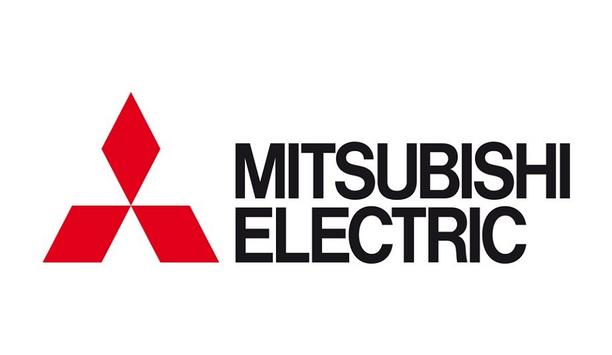When it comes to Hurricanes, Mother Nature usually wins. Recent advancements in Louver design, however, are leveling the playing field. Ruskin's new Hurricane Louvers hold up under pressure in severe weather by preventing wind and rain damage. These louvers are built to withstand 160 psf windloads and nearly 9" per hour rainfalls. With this engineering breakthrough, it’s no wonder Ruskin products are the most widely specified in the industry.
series of test protocols
As the provider of the HVAC industry for 40 years, Ruskin offers a complete line of dampers and louvers that are unmatched in quality and performance. The South Florida Building Code (SFBC) states that products installed on the exterior of buildings must be designed to withstand the severe conditions produced by hurricanes. However, the widespread failure of various building products during Hurricane Andrew in 1992 identified a need for stronger code enforcement.
To gain Miami-Dade County approval, louvers may be required to pass as many as four different tests
Recognizing that standardized testing and product control could assist enforcement, the Metro-Dade County (later changed to include all of Miami-Dade County) Florida Building Code Compliance Office (BCCO) developed a series of test protocols that subject products to the rigors of hurricane wind and rain conditions. To gain Miami-Dade County approval, louvers may be required to pass as many as four different tests, three are structural and one measures wind driven rain penetration resistance. These tests are referred to as PA’s or Protocol and Application Standards.
heavy simulated rainfall
PA-100(A): Wind Driven Rain Penetration Test
The BCCO requires this test if the room the louver is installed in is designed to be dry (room is not designed to drain water and/or houses items that are not water resistant). This test subjects the louver to high velocity winds and heavy simulated rainfall. Using a wind generator and water jets that inject the equivalent to 8.8" per hour rainfall into the airstream, 15 minute tests are run at wind velocities of 35, 70, and 90 mph.
The final 110 mph test is performed for 5 minutes. The louver must allow no water penetration at 35 and 70 mph, and only .05% penetration at 90 and 110 mph.
water resistant items
PA-202: Uniform Static Air Pressure Test
If a louver is installed in a room that can drain water and houses water resistant items, the wind driven rain test is not required. Instead, the PA-202 test is performed. In this procedure, the louver is installed in a chamber and uniform static air pressure is applied in positive and negative directions.
Several pressure levels are applied in increasing magnitude until a load equal to 1.5 times the design windload is attained. Pressures are sustained for 30 seconds. The deflection of blades, frames and supports is measured during the test and the amount of recovery is checked afterwards. Throughout the test the anchorage system is also monitored for failure.
Design windloads for hurricane applications can produce static pressures in excess of 28" w.g. If the room is considered a closed structure that cannot withstand this pressure or if it houses equipment that cannot handle the pressure, the BCCO code requires the louver/damper assembly be subjected to the PA-201 and PA-203 tests.
exposes possible weaknesses
PA-201: Large Missile Impact Test
This test simulates wind-driven debris that is often present in hurricanes. In the test, the louver assembly is impacted with a 2"x 4" board weighing 9 lbs. and traveling at approximately 34 mph. At least three separate impacts are conducted and the louver must prevent the board from both penetrating the assembly or creating a significant opening.
PA-203: Cyclic Wind Pressure
This test is conducted only after the Missile Impact Test has been done. By simulating the forces applied to a louver by repeated severe wind gusts, this test exposes possible weaknesses in the assembly created by the missile impacts. In this test, the louver assembly is installed in a chamber similar to the Uniform Pressure test.
However, the pressures are applied for only a few seconds and repeated several hundred times. Pressure is increased until 1.3 times the design windload is achieved. As in the PA-202 procedure, the deflection of the components and the anchorage system are examined.
industrial control damper
The ELF6375DXD louver was tested in the PA-202 Static Air Pressure Test and has been approved for use
Ruskin is the first manufacturer to gain Miami-Dade County approval for louvers. Both the ELF6375DXD Louver and the ELF6375DXD/CD102 Louver/Control Damper combination have been issued the Miami-Dade County, Florida Notice of Acceptance Number 97-1023.04.
The ELF6375DXD louver was tested in the PA-202 Static Air Pressure Test and has been approved for use in open structures that are designed to drain water. Maximum design wind load is ±138 psf. The ELF6375DXD/CD102 combination louver/damper assembly features an industrial control damper mounted behind the louver in a common sleeve.
designed to drain water
This assembly was tested in all the 200 series tests and has been approved for use in closed structures that are designed to drain water. Maximum design wind load is ±148 psf. For dry applications, Ruskin has also qualified their EME6625D for open structures and their EME6625D/CD50 Louver/Control Damper combination for closed structures.
These louvers and louver/damper assemblies have passed all three 200 series structural tests up to 160 psf and additionally have passed the critical PA-100(A) Wind-Driven Rain test. Miami-Dade County Acceptance Number is pending on Application Number 98-0127.03.
















